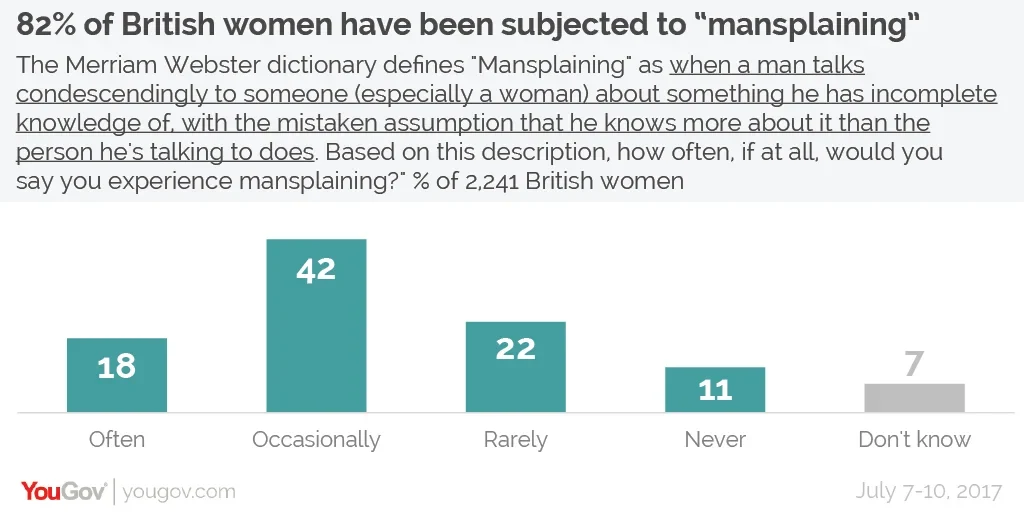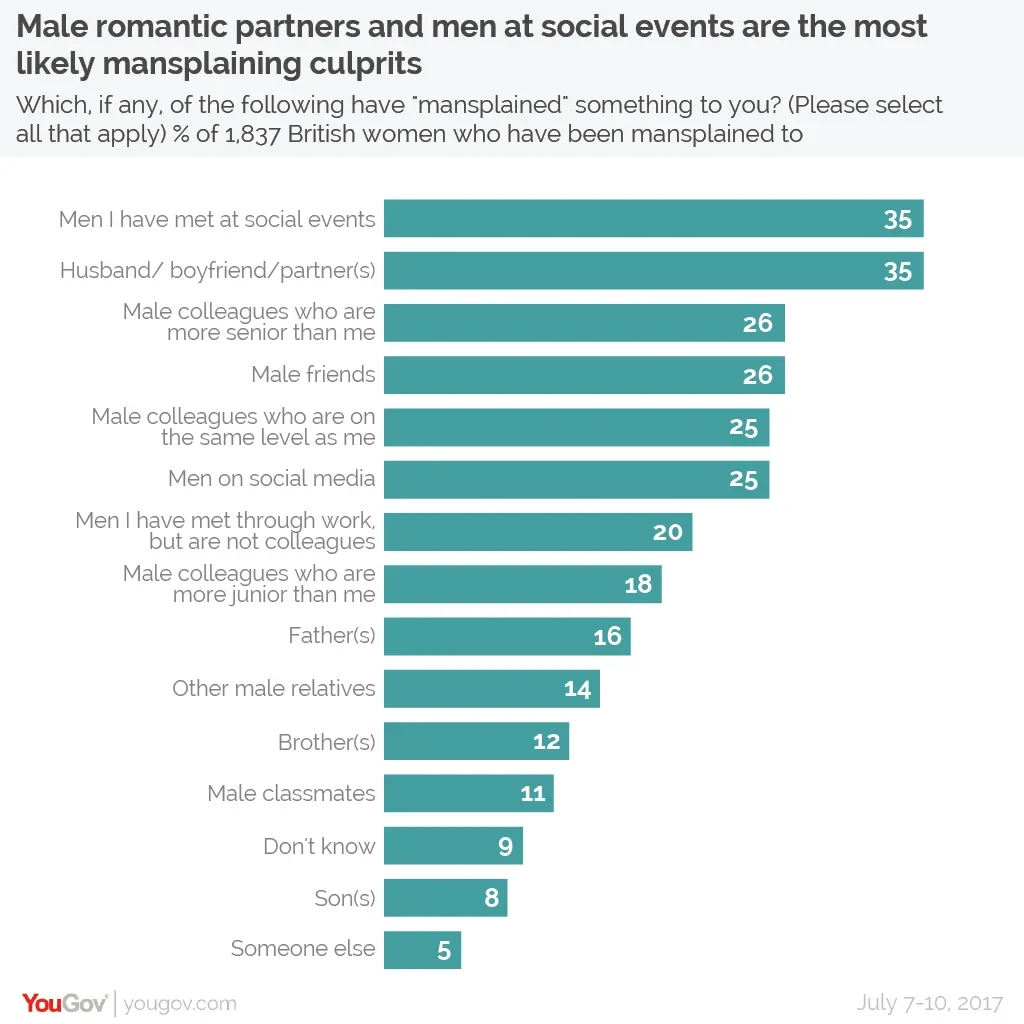While only 39% of women have come across the term before, the vast majority have encountered "mansplaining"
“Mansplaining”, as defined by Merriam-Webster, is “when a man talks condescendingly to someone (especially a woman) about something he has incomplete knowledge of, with the mistaken assumption that he knows more about it than the person he's talking to does”.
The spiritual origin for the term is often regarded as being author Rebecca Solnit’s 2008 essay entitled “Men Explain Things to Me” (although Solnit herself did not explicitly use the word, the first known source for which was posted in the comments section of a LiveJournal article a few weeks after the essay’s publication).
Now new YouGov Omnibus research reveals that 82% of British women have been subjected to mansplaining, with one in five (18%) saying that they experience it “often”. The largest proportion of women (42%) say that they “occasionally” face mansplaining, while only 11% say they have “never” been subjected to it.

Younger women are the most likely to say they’ve been mansplained to, with 69% of 18-24 year olds facing it either often or occasionally.
However, the research shows that recognition for the term itself lags far behind the experience of it. Only 32% of women said they knew was “mansplaining” was, while a further 7% had heard or read the expression but didn’t know what it meant. Knowledge of the term was particularly high among younger women (those aged 18-34) and Londoners, while middle class women were noticeably more likely to have encountered the term than working class women.
Who are the most likely mansplainers?
Along with husbands, boyfriends and partners, men at social events are the most likely mansplaining culprits, with 35% of women who have experienced mansplaining saying that they had endured it from these groups.
Other common offenders include male colleagues who are more senior (26%) or on the same level (25%) as the women in question, male friends (26%) and men on social media (25%). This last one was particularly common for women aged 18-24, among whom 45% said that they had been mansplained to while on social media.









